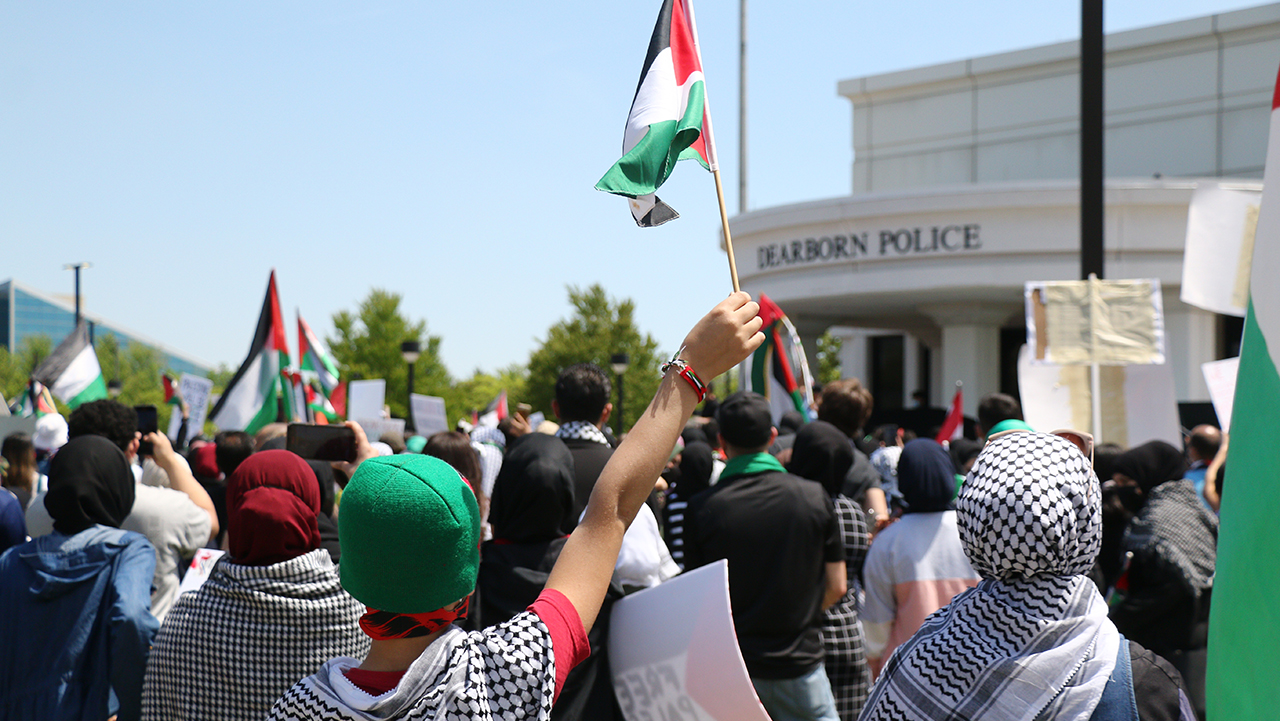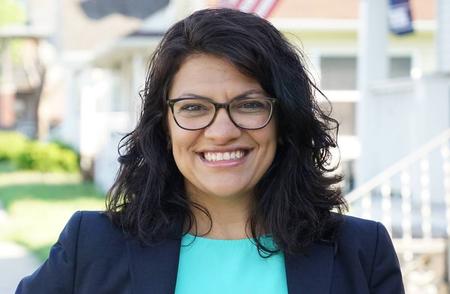Rep. Tlaib on Family in Palestine: “They Just Want to Live”
Rep. Rashida Tlaib says we can’t sit idly by and discuss the conflict in a way that doesn’t recognize Palestinian life.

After weeks of violence, the Israel-Hamas cease-fire is now holding. Several human rights groups, including ones inside of Israel, are condemning the Israeli government’s actions against the people of Gaza. President Biden continues to emphasize that the U.S. position is always to stand with Israel, but many Americans are demanding action against the state for their treatment of the Palestinian people.
“I say this even about policing in our own country. You can’t police away poverty … and you can’t bomb away oppression … you can’t do that and have a result that will be more peaceful.” –Rep. Rashida Tlaib, MI-13
Rep. Rashida Tlaib (MI-13) says she wants to take away the Islamophobia and antisemitism from conversations surrounding the conflict, and focus on the injustices. And she begins by reflecting on her own family’s experience in the West Bank.
Listen: Rep. Tlaib on harmful rhetoric surrounding the conflict.
Guests

Rep. Rashida Tlaib represents Michigan’s 13th district. She is the only Palestinian member of Congress and has family in the West Bank. She says she has firsthand experience of Israeli occupation. “I remember as a little girl — some seven years old to 12 years old and even in my late teens — visiting my grandmother in the West Bank in Palestine. And I would be holding her hand while we went through the checkpoints. I remember the moment and the trauma it caused me to watch an Israeli military officer hold a huge gun towards her.”
When President Biden visited Dearborn last week, Tlaib confronted him on his policies surrounding the conflict. “I welcomed the president to my hometown with a smile,” she says. “And one of the things he asked about was my grandmother, and right away I expressed the disappointment that his words are being used against people like me.”
Tlaib says when Americans talk about the conflict, it should not be framed as Islam vs. Judaism. “I listen to Jewish Voices for Palestine … many are my Jewish neighbors who are saying this isn’t making Israelis safer … these policies are not making life safer.” Tlaib says the violence inflicted on Palestinians by Israel makes everyone more unsafe. “I say this even about policing in our own country. You can’t police away poverty … and you can’t bomb away oppression … you can’t do that and have a result that will be more peaceful.”
”We need to differentiate between the current Israeli government’s policies and what most Israelis actually think and feel.” –Howard Lupovitch, Wayne State University Cohn-Haddow Center for Judaic Studies
Howard Lupovitch is an associate professor of history at Wayne State University and director of the Cohn-Haddow Center for Judaic Studies. He says Israelis were trying to form a coalition government before the current conflict. “We need to differentiate between the current Israeli government’s policies and what most Israelis actually think and feel.” He says he believes the state of Israel is necessary, but says it also created this conflict. “Looking at both sides is very important … Zionism and the state of Israel solved a European problem and created an Asian or a Middle East problem … it was created to be not only a Jewish state but also a democratic state … both of those things are necessary.”
Lupovitch says Hamas does not represent all Palestinians, and the same goes for the current Israeli leadership and citizens of Israel. “If we could remove the Israeli right-wing extremists from this equation, the conflict could resolve itself very easily.”
Saeed Khan is a lecturer of near east and Asian studies at Wayne State University. He says Palestinians are disenfranchised in multiple ways under Israeli occupation. “Part of the way to understand what’s happening currently … is that Israel is moving farther and farther to the right.” He says with extremism from Hamas and the state of Israel, it’s becoming more difficult to resolve the conflict. “We are finding that the space for some kind of return to negotiation is looking precarious because the [political] center is in jeopardy of no longer holding,” Khan says.
Trusted, accurate, up-to-date
WDET is here to keep you informed on essential information, news and resources related to COVID-19.
This is a stressful, insecure time for many. So it’s more important than ever for you, our listeners and readers, who are able to donate to keep supporting WDET’s mission. Please make a gift today.
